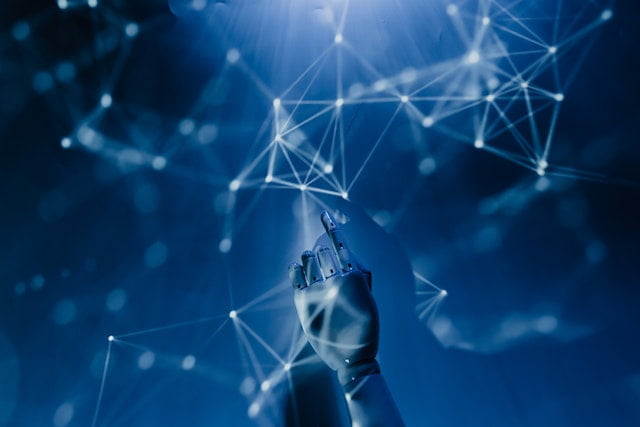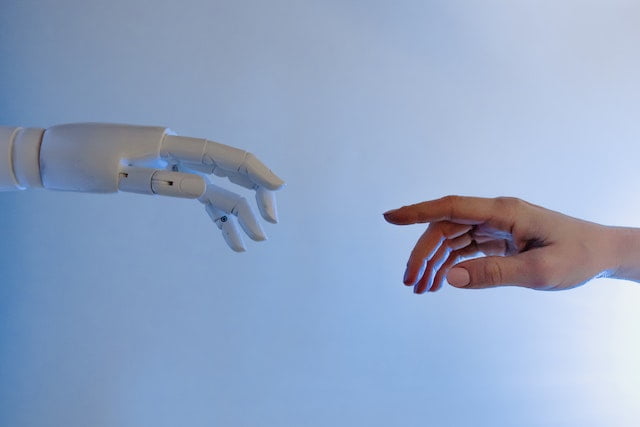
Shortly after the apocalypse supposedly prophesied by the Mayans did not happen in 2012, another horror scenario became popular: the world domination of the “Terminator”, that is, of intelligent machines, which, for a long time, have given rise to news every day. time worse. The extent to which fear of supercomputers is widespread is shown by a survey conducted by the Society for Innovative Market Research (GIM) commissioned by the Bosch Group.
According to the study , published in 2020, 82 percent of German citizens fear widespread surveillance by artificial intelligence (AI). A similar number (79 percent) believe that technical systems would make unethical decisions, and three in four respondents see our security as threatened by the growing power of machines acting autonomously. The fact that “Big Brother” observes our living room and our bedroom is for most a reality that has been felt for a long time. Is dominance of bits and bytes imminent ?
This question begs a technical question: is AI, in principle, capable of doing such a thing? In a way, yes. Smart algorithms are already being used, for example, as instruments of espionage and manipulation, by people and organizations pursuing different goals. However, this does not mean that the AI itself aspires to anything close to dominance.
Philosophers of technology discuss this question under the term “intentionality,” that is, the quality of carrying out deliberate and object-oriented actions. Many authors consider intentionality as a permanent component of consciousness.
Intentionality is mainly attributed to mental states, such as perceptions, beliefs or desires. The underlying idea is that we can always address individual, chosen objects, but never the world as a whole. When we think or feel, we use a kind of “searchlights” that illuminate limited sections of the world; not all at once, as the Sun does. What enters our consciousness (perceptions, thoughts, feelings or other contents of experience) in each case has subjective experiential properties, also called qualia (for example, the sensation of pain or the perception of the color red).
We humans consider AI to be intentional because we ourselves are.

The systems of the machines do not know the mechanical connections, nor the communicative ones or others. The meaning of their reactions derives only from human intentionality. In other words: if an autonomous vehicle brakes to avoid hitting a pedestrian, that “stop” comes from human beings. Legal, social or moral reasons and considerations are only known to us.
For Searle, intentionality is not based solely on the understanding of meaning. Rather, it is linked with certain ‘speech acts’. In Searle’s speech act theory, communicative acts must be interpreted as actions. Human language, beyond grammar and meaning, always has an intentional purpose, absent in the sign systems of the machine.
Along with Paul Grice and other theorists, Searle developed the thesis that intentionality manifests itself only in the capacity for directed use of language. This arises when a person pursues an intention that makes them speak. For example, a mother and Amazon Alexa can respond with the same words when a child yells “Ouch!”: “Oh, I’m sorry, can I help you?” The content meant, however, could hardly be more different: empathy and care, on the one hand; a simple programmed courtesy formula, on the other.
Some AI apologists argue that this is true only for “weak AI” since it can only deliver those results that have been previously delivered to it. Such is the case of the existing AI to date: whether it is to select a candidate, to diagnose a cancer or for autonomous driving (all the decisions that such systems are capable of are based on computational routines that humans have designed) .
Another thing is “strong AI”. Here, humans give only the initial push. All subsequent structuring and reaction patterns are generated by the AI itself. Consequently, they say, it could also develop an intentionality of its own —however, this possibility is so far only a hypothesis. All the dystopias according to which such systems could subjugate or exterminate humanity are pure science fiction.
Still, the most cautious predictions about how AI will change our world are more than worth considering. A study by the Institute for the Future of Humanity, in Oxford, published in 2018, predicted that in the course of the 2020s many jobs would be carried out by machines: from translating texts to driving trucks. The AI could even conquer the bestseller lists with its own songs or write news and bestsellers. Seen this way, it seems to penetrate original human areas.



